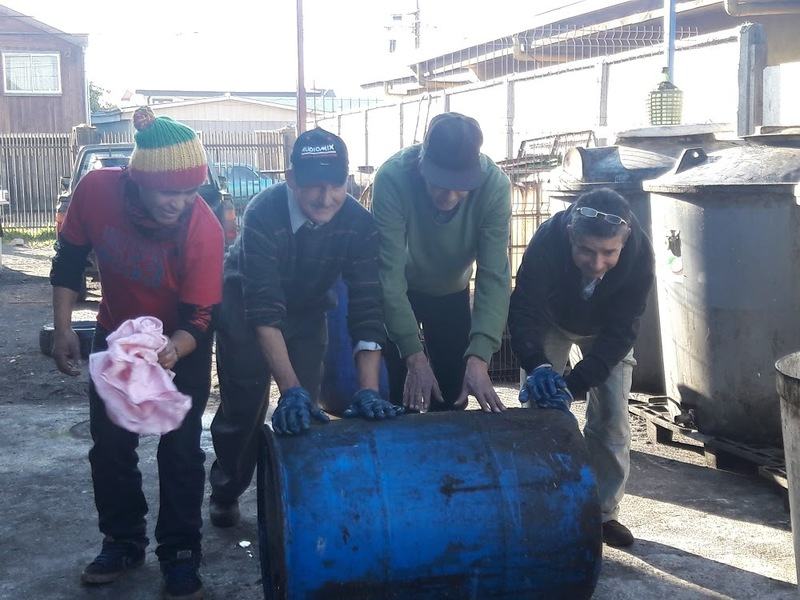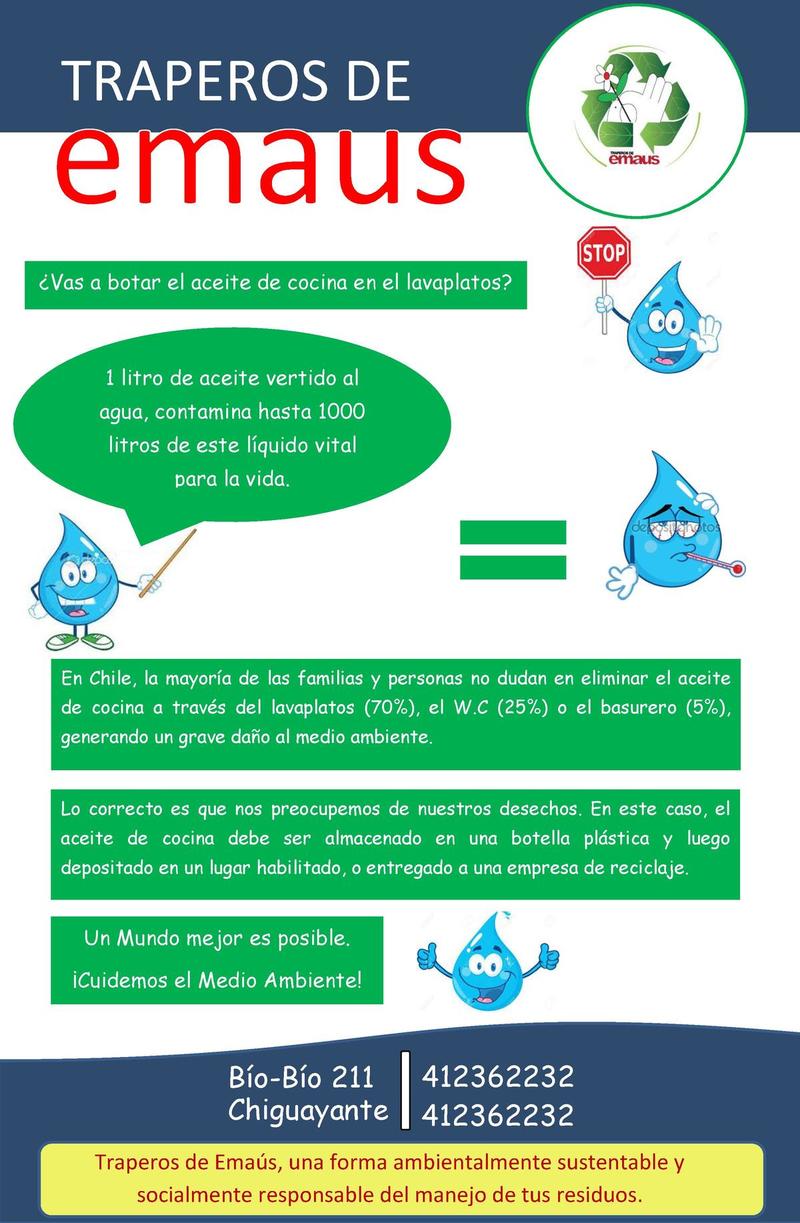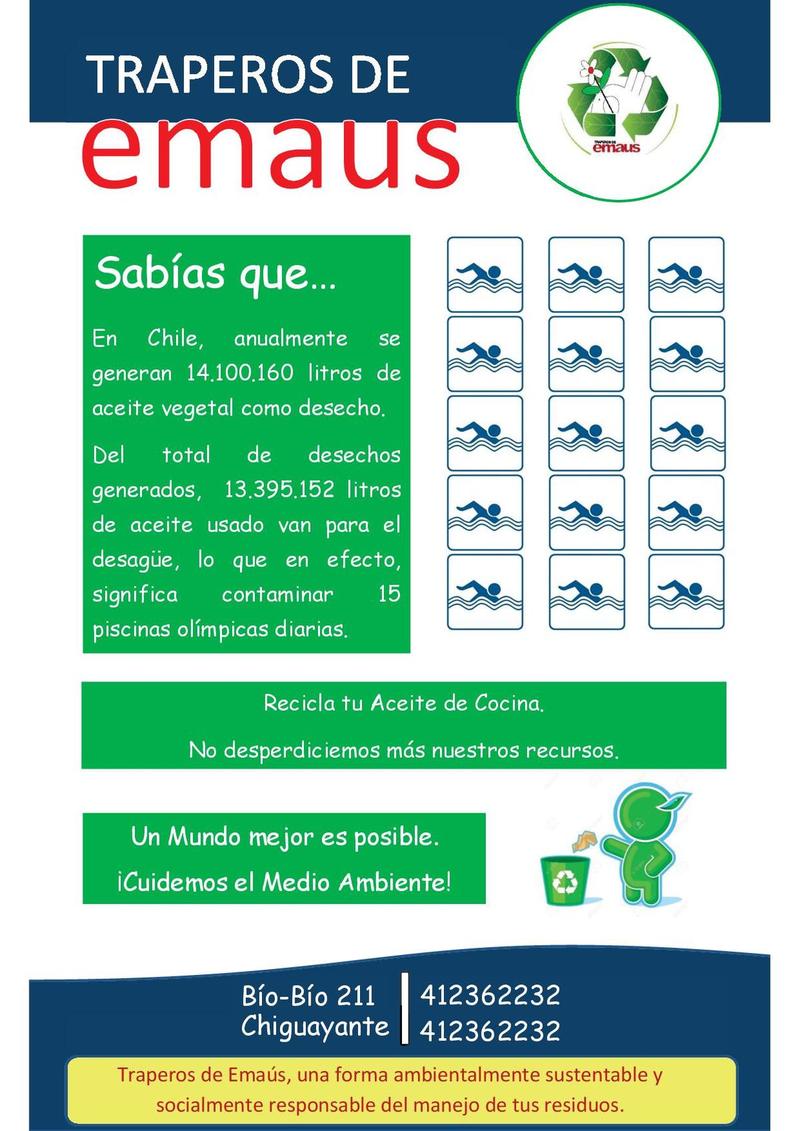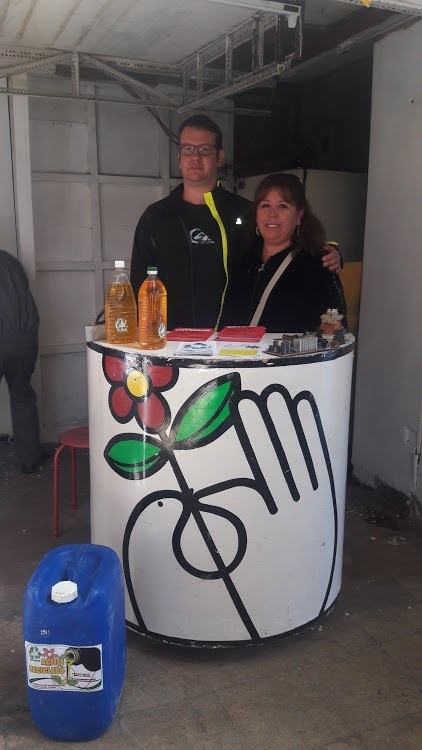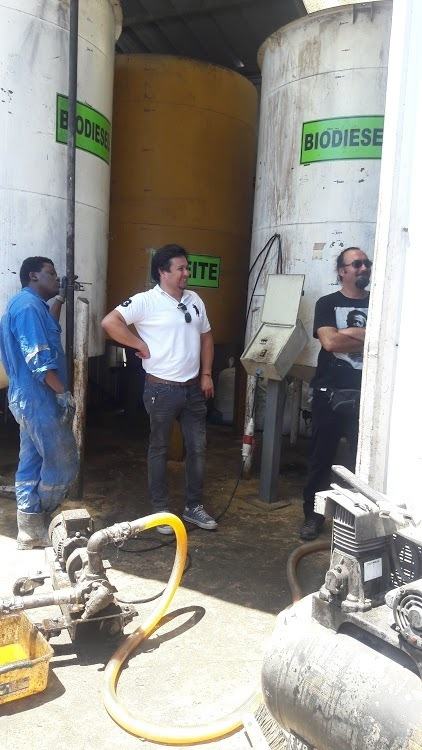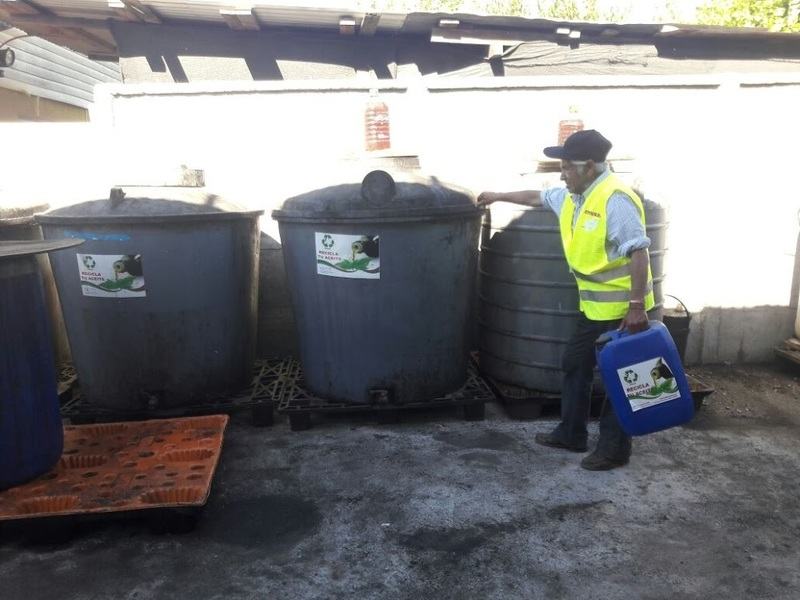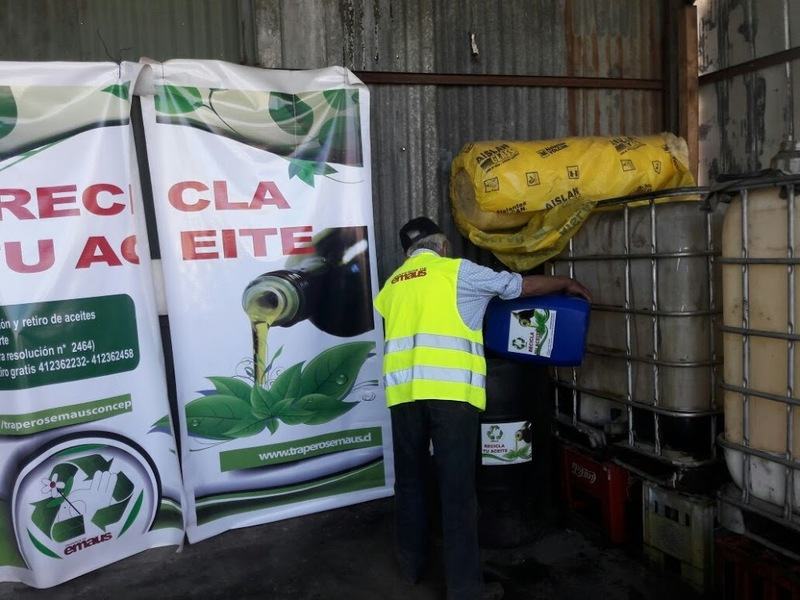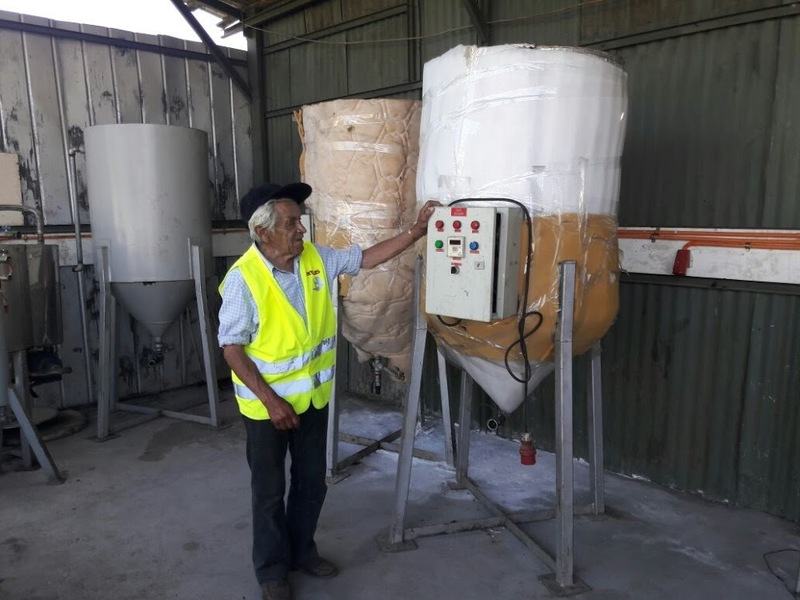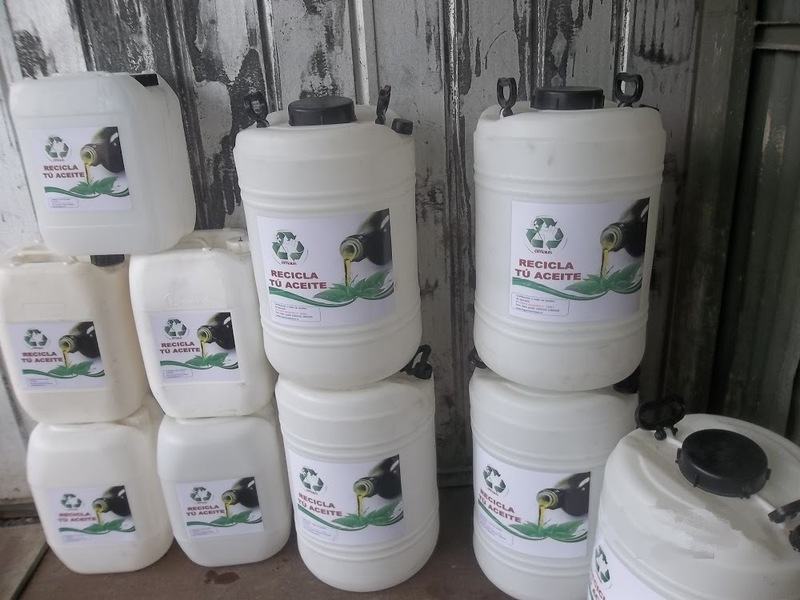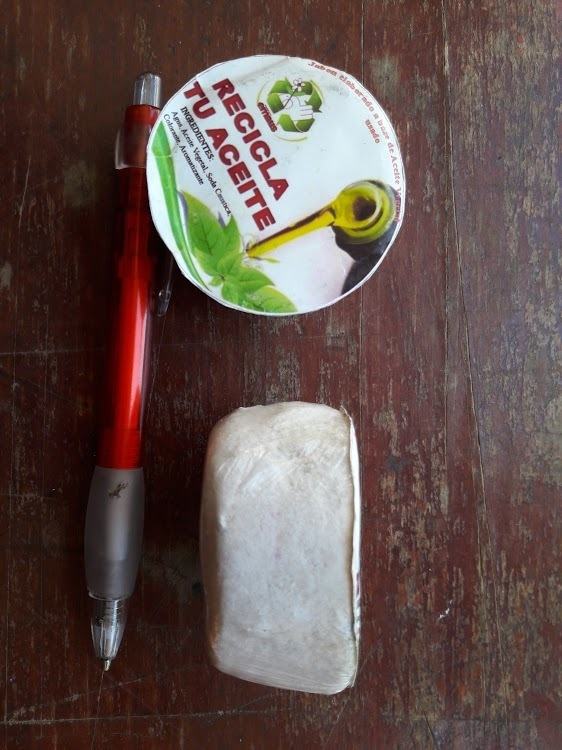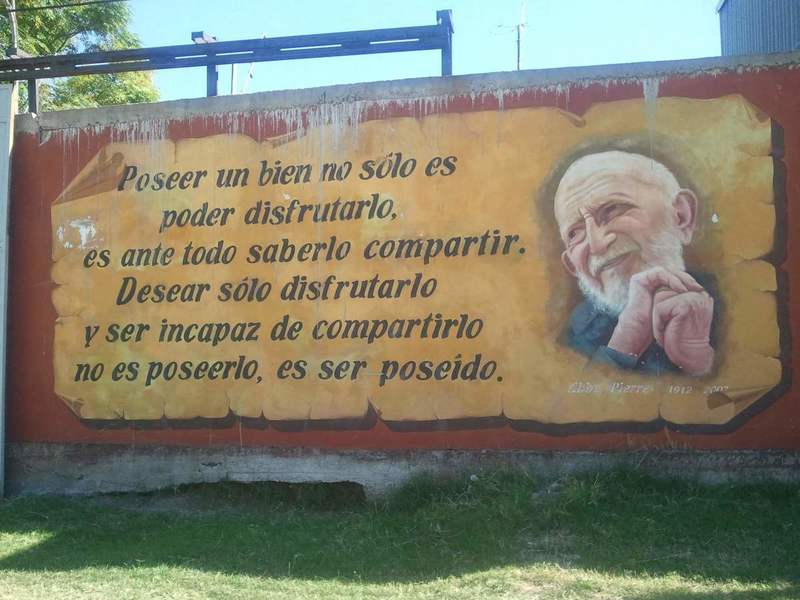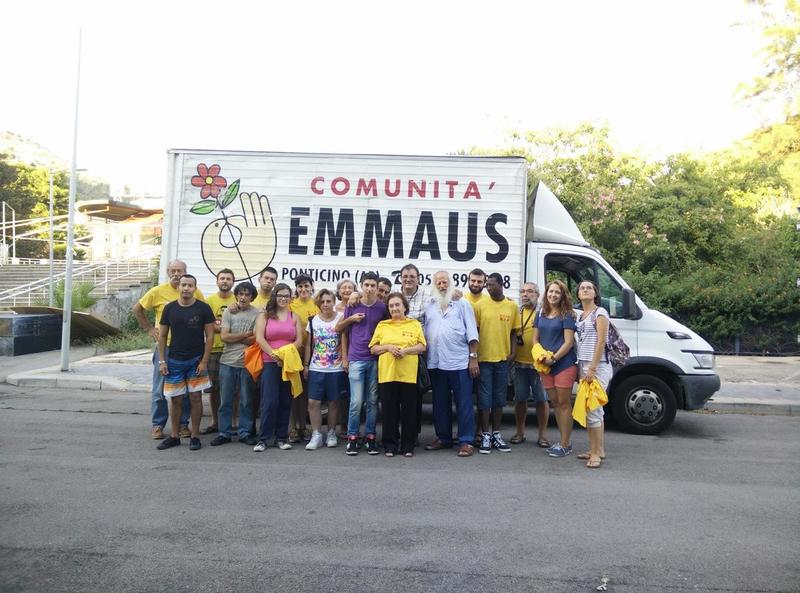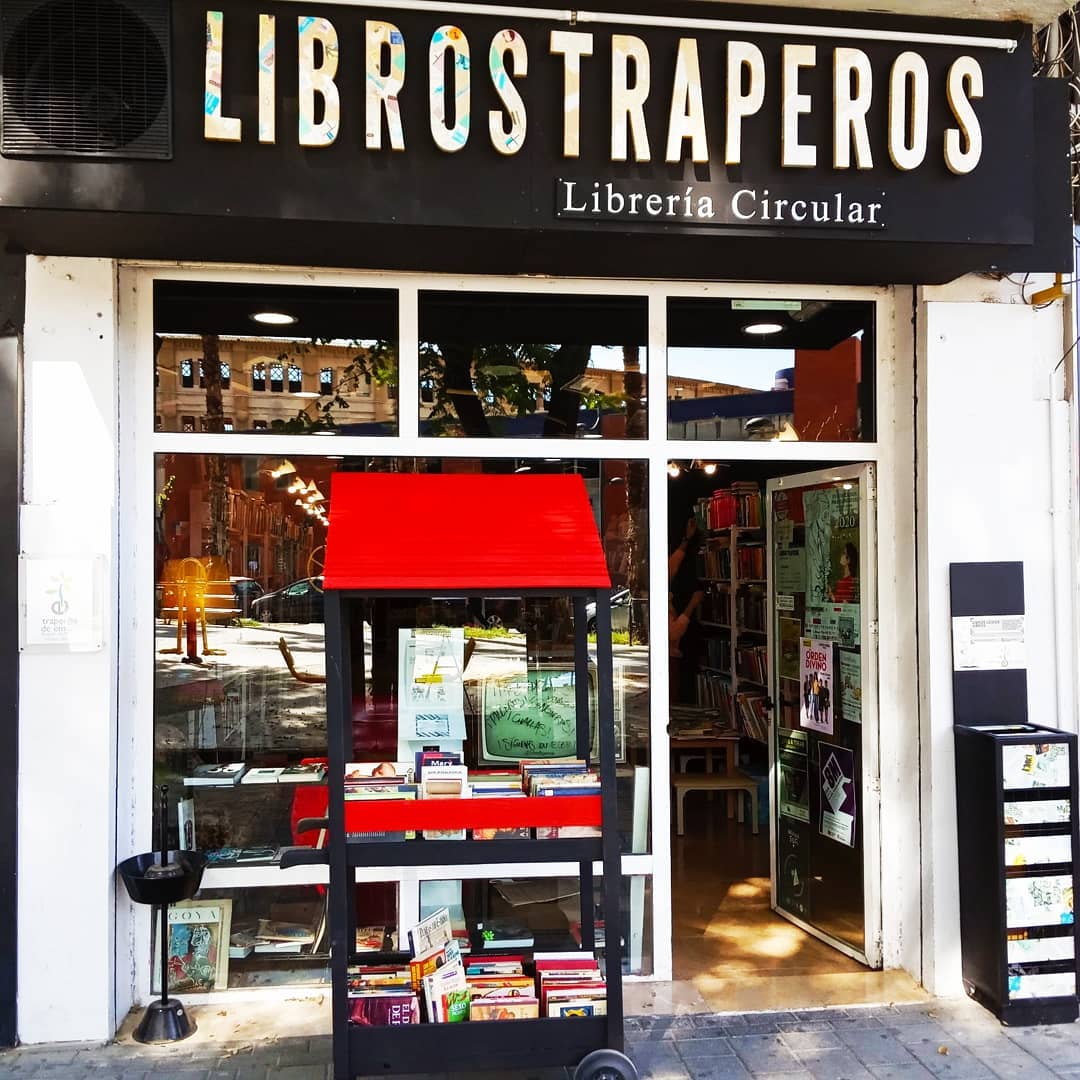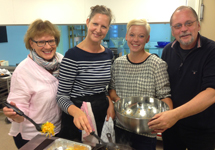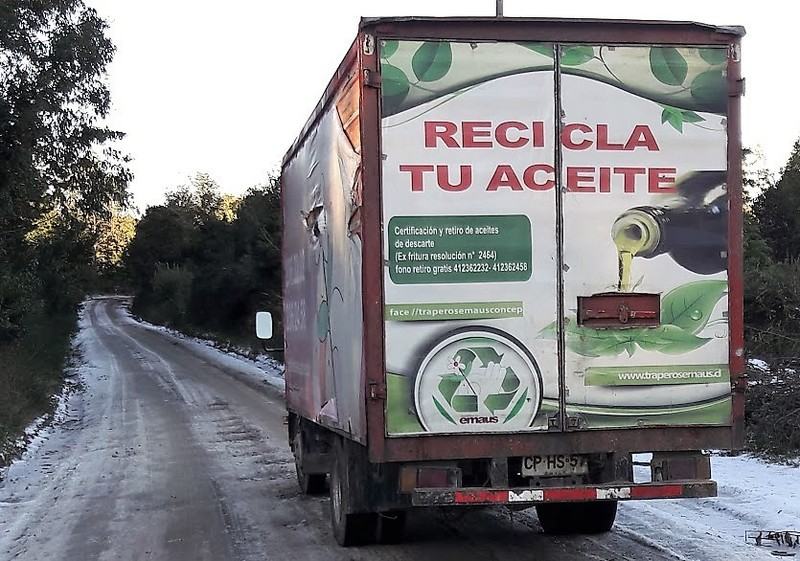
Santiago – Chile
Recycling, collection and transformation of waste oil
THE CONTEXT OF YOUR INITIATIVE
We live in an age where we generate lots of organic waste (discarded oil) that can be reused, and where Chile’s big cities are accumulating waste without any law to regulate it, polluting Mother Earth, in particular her waters.
From a position of wanting to protect Mother Earth, and an understanding that nature supports human life and that we cannot live without Mother Earth, but she would be able to live without humans, at Las Urracas we have started to look for ways to take responsibility for this situation.
In this regard, and given that domestic-use oil poured down drains and onto the ground seriously pollutes the environment, we set up this oil-recycling venture.
According to studies, we know that one litre of oil can pollute 1000 litres of water. (Countries that are leaders in oil recycling recycle over one litre per capita per year, whereas in Chile it is practically 0% litres.) Most of this oil is poured down the drain, (70% of obstructions in piping is linked to pouring away this used vegetable oil) onto the ground in our cities and into our sea, and both through the drains or through the groundwater, this oil ends its journey of pollution in the ocean.
While working as scrap collectors, we collect and recover domestic-use oils, filter them and take them to their final destination where they are converted into Biodiesel.
THE ACTIVITIES CARRIED OUT AS PART OF YOUR INITIATIVE
To set up this venture we needed to inform ourselves more about current Chilean legislation around environmental protection. With this information, we started the process of certification for our companions, premises and vehicles for this task.
During this process we discovered a legal and cultural vacuum in Chile for dealing with discarded oil, which is not a priority compared to lubricating or industrial oil. We therefore decided to start activities to address these vacuums.
To launch this initiative, we have started to carry out environmental education activities together with the local authorities in the metropolitan areas and in Concepción. These activities were initially aimed at children (schools) and neighbourhood councils (in slum areas).
In Concepción we launched a media campaign and carried out visits to food businesses in the municipalities of Chiguayante, Concepción, San Pedro de la Paz, Hualpén and Talcahuano.
WHO IS INVOLVED FROM OUR GROUP?
The work we have been carrying out in Las Urracas broadly splits into three different aspects: management, practical work and administration.
For management, both the Santiago and the Concepción teams have a manager who is responsible for directing the work and progressing towards proposed targets.
The practical work is carried out by a team that has the task of preparing the material for collection (in drums), filtering the oil and collecting it in the appropriate containers.
The administrative side supports the logistics behind these tasks.
WHICH PARTNERS ARE YOU WORKING WITH ON THIS INITIATIVE?
Photos
FUTURE PROSPECTS
According to our records we have managed to remove approximately 2500 litres of waste oil per month from the environment, preventing it from ending up in drains and the sea.
Another important achievement is environmental education, taking the topic of oil recycling to the most vulnerable and defenceless populations in our society. Thanks to this, we have managed to extend our contacts and strengthen the public relations that we need to promote the topic in social and political organisations, as well as public establishments that are focused on this issue.
WOULD YOU LIKE TO ADD ANY INFORMATION ABOUT YOUR INITIATIVE?
WHAT ARE YOUR PROSPECTS?
We have realised that when it comes to recycling oil, we need to continue expanding service coverage in the cities in which we are present. To do this, we need to strengthen our work on public relations with those who require our service.
Expanding our coverage will require us to have increased working capacity, which will mean increasing the number of companions, improving transport (the trucks) and our capacity for collection and filtering.
